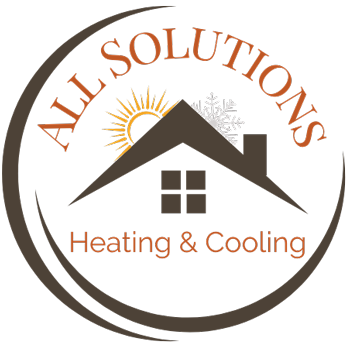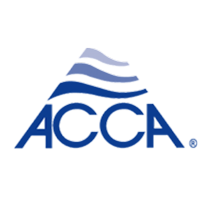
We can all benefit from saving money from time to time. One of the easiest ways to accomplish this is by improving energy efficiency throughout your home. Upgrading your HVAC system or adding a smart thermostat, for example, gives you more control over your HVAC equipment, resulting in a more energy-efficient home and lower monthly energy bills.
Continue below to read about 4 ways you can make energy-efficient home improvements.
1. Install Smart Home Products Like a Smart Thermostat
If you still use an older thermostat and access it manually, think about taking a step toward the future by installing a smart, or Wi-Fi, thermostat – which includes numerous features to assist with energy efficiency.
The functionality homeowners enjoy the most is having the capability to access their smart thermostats from wherever by using their smartphone or other smart device. For example, if you forget to use your thermostat before taking a vacation, you can easily use your smartphone and make the necessary adjustment.
Similar to a programmable thermostat, a smart thermostat allows you to schedule your home’s temperature according to the time of day and day of the week so you’re not cooling or heating an empty house. Smart thermostats also offer the ability to watch your temperature preferences over time and automatically make energy-efficient modifications. They also create monthly energy reports that demonstrate how much energy you are using and when so you can make modifications to cut costs.
If you’re wondering how to secure a free smart thermostat, ask your utility company to learn if there are any discounts or free smart thermostats available.
2. Routine HVAC Maintenance
Regrettably, lots of homeowners often forget to keep their heating and cooling systems maintained. While this might not seem like a huge deal, ignoring maintenance can produce a number of issues, including inefficiency, breakdowns, and a shorter system lifespan.
When performing an HVAC maintenance service, a heating and cooling technician should inspect your HVAC system, clean important components, and catch minor flaws before they produce bigger, more expensive repair issues. Tune ups keep HVAC systems functioning at optimal condition, which means less energy is needed to heat and cool your home. This can lower your energy bills, increase the lifespan of HVAC equipment, and lead to fewer repairs.
We suggest two HVAC tune ups each year – once during the spring before summer and one during the fall before the arrival of winter weather.
3. Upgrading Your Worn-Down, Inefficient HVAC Equipment
Regretfully, like all appliances, HVAC systems don't last forever and inevitably need to be replaced. Newer heaters and cooling systems are much more energy efficient than units sold just over a decade ago. Fortunately, local HVAC companies like All Solutions Heating & Cooling can perform professional services such as furnace installation in Beaverton.
Well-maintained furnaces and air conditioners can run for about 15-20 years. If your system is within that timeframe, it can be a good idea to replace them ahead of time to minimize the risk of premature breakdowns that can leave you cold and uncomfortable on a cold winter night. If your system is approaching 15 years old and needs an expensive repair, it’s usually time to replace it. According to the U.S. Department of Energy, upgrading to a new HVAC system could save you between 20-40% on your monthly energy bills, so you’ll get back some of the costs of installing a new system.
A professional heating and cooling technician can help you identify the most energy efficient HVAC system for your needs. As a general rule of thumb, seek out HVAC systems that are Energy Star certified, indicating the equipment fulfills rigid guidelines established by the U.S. Environmental Protection Agency. LENNOX HVAC systems can be some of the most efficient systems on the market, featuring both high AFUE and SEER ratings. AFUE is intended for heating systems and measures how well they convert fuel to heat. SEER, on the other hand, is used to measure the energy efficiency of air conditioning systems.
Call a reputable HVAC provider like All Solutions Heating & Cooling for air conditioning installation in Beaverton.
4. Use High Efficiency Air Filters
If you’re shopping for new HVAC filters, keep in mind that not all air filters are capable of providing the same results. Certain air filters are far more efficient than others, contributing to lower energy bills and a clean home.
The effectiveness of HVAC air filters is rated by their Minimum Efficiency Reporting Value, or MERV rating. The MERV scale ranges from 1-20; the higher the number, the more effective the filters are. It’s important to note, however, that high-efficiency air filters can actually impede airflow too much based on the type of HVAC system you installed. It’s important to review the owner’s manual before purchasing a filter to find the ideal model for your system.



